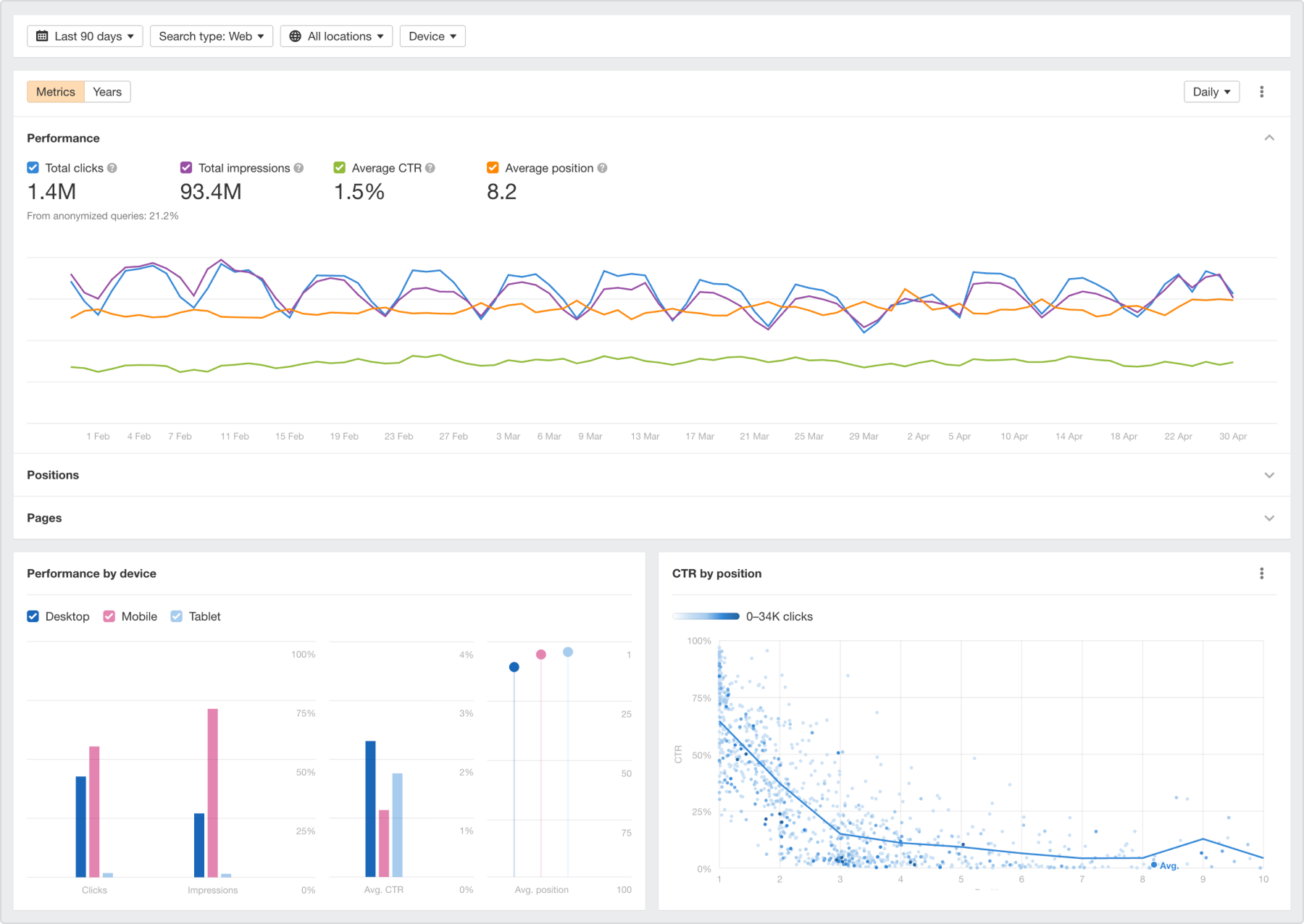SEO Agency in South Africa – National Search Engine Optimization Experts
Magoven is a national SEO agency in South Africa helping businesses increase organic visibility, generate qualified leads, and achieve measurable growth through strategic search engine optimization.
We deliver technical SEO, content optimization, authority building, and regional targeting strategies designed for competitive South African markets — from Johannesburg and Cape Town to Durban and Pretoria.
Top-Rated South African SEO Agency

Why SEO in South Africa Is More Competitive Than Ever
South Africa’s digital economy continues to expand rapidly. As more businesses invest in online marketing, competition for first-page rankings across industries has intensified.
To rank nationally, businesses must:
- Optimize technical website infrastructure
- Build strong domain authority
- Create high-intent content clusters
- Strengthen regional search signals.
A basic SEO approach is no longer enough — strategic, data-driven optimization is required.
What is the state of Search in South Africa for 2026?
Search in South Africa has evolved into a distributed network of AI-generated answers and localized entity authority. To rank on Google.co.za today, brands must move beyond keywords and focus on Information Gain and Mobile Resilience. Magoven’s 2026 framework ensures your brand is not just indexed, but cited as the primary authority in South African search.
National SEO Services in South Africa
We structure SEO campaigns based on industry competitiveness, regional demand, and long-term scalability.
Technical SEO
• Site audits & performance optimization
• Core Web Vitals improvement
• Indexing & crawl optimization
• Structured data implementation
Content & On-Page SEO
• High-intent keyword targeting
• Content architecture planning
• Internal linking silos
• Metadata optimization
Authority & Link Building
• Strategic backlink acquisition
• Industry partnerships
• Digital PR
• Trust signal strengthening
Regional & Provincial SEO
• Multi-location targeting
• Province-specific landing pages
• Google Business Profile optimization
• Regional authority building




Why Your Brand Needs a Localized 2026 SEO Strategy
International strategies fail in Mzansi. We optimize for the unique technological and cultural realities of the South African digital economy.
- Mobile Resilience (3G/4G Optimization): With mobile data costs and load-shedding-affected tower speeds, we prioritize Interaction to Next Paint (INP). Your site must react instantly, even on a shaky connection in Sandton or a 4G tower in Umhlanga.
- Hyper-Local Semantic Intent: We don’t just target “Plumber.” We target “Emergency Plumber Sandton Load-Shedding Ready.” We map your business to the hyper-local entities your customers actually search for across all 9 provinces.
- Verified E-E-A-T (Trust): South African consumers value authenticity. We build “Human-First” trust signals, connecting your brand to local news outlets, verified ZA directories, and proprietary South African data.

Our 2026 SEO Framework: From Ranking to Revenue
We’ve replaced “Generic SEO” with Agentic Workflows and Entity Authority.
Information Gain Content
We stop the “AI-Fluff.” Every piece of content we produce for you includes original data, expert ZA insights, or proprietary case studies that AI can’t replicate.
Entity Mapping & Schema
We don’t just write meta tags. We build a machine-readable Knowledge Graph for your business using advanced JSON-LD Schema (LocalBusiness, FAQ, HowTo, and AreaServed).
Agentic Technical Audits
We deploy autonomous AI agents to monitor your site 24/7, fixing broken links, redirect loops, and speed bottlenecks before they impact your rankings.
SEO Packages in South Africa – Structured for Competitive Markets 2026
SEO pricing in South Africa varies depending on industry competition, geographic targeting, and growth goals. At Magoven, our packages are designed around scalability — whether you’re targeting one city, multiple provinces, or national market leadership.
Each package includes strategic planning, technical optimization, performance tracking, and measurable growth objectives.


Local Dominator
Target: Suburb & City Level (e.g., Sandton, Sea Point, or Umhlanga).
Best For: Small businesses, medical practices, and local service providers.
R 0
/ month
- Hyper-Local Entity Mapping: Optimization for "Near Me" searches and Google Maps.
- Suburb-Specific Landing Pages: Targeted content that speaks to your immediate neighbourhood.
- Local Citation Audit: Ensuring your N.A.P (Name, Address, Phone) is consistent across ZA directories.
- GMB Management: AI-optimized Google Business Profile updates to win the Local Pack.
- Monthly ROI Reporting
Provincial Power
Target: Province-Wide (e.g., Gauteng, Western Cape, or KwaZulu-Natal).
Best For: Service area businesses with multiple branches or regional retailers.
R 0
/ month
- Regional Content Hubs: Building authority across an entire province.
- Multi-Location Schema: Advanced backend code for businesses serving multiple cities.
- Provincial Link Building: Acquisition of high-authority links from regional SA publishers.
- Competitor Benchmarking: Analyzing and outranking regional leaders in your industry.
- Monthly reporting focused on keyword growth and organic traffic increases
National Authority
Target: South Africa National (.co.za Domination).
Best For: E-commerce stores, national franchises, and high-competition industries.
R 0
/ month
- SGE & AI Overview Hijacking: Specialized tactics to ensure your brand is the cited source in national AI summaries.
- High-Competition Link PR: Top-tier placements on South African industry sites.
- National Topic Clusters: Creating massive "Pillar Pages" that define you as the South African authority in your niche.
- Premium Digital PR
- Agentic Technical SEO: 24/7 autonomous monitoring for enterprise-level site performance.
- Multi-location pages rollout and faceted navigation optimization for e-commerce sites.
Not Sure Which SEO Package Is Right for You?
Every industry and region in South Africa has different levels of competition.
We provide a free SEO strategy consultation to assess your market and recommend the most effective growth plan.
SEO Pricing Overview – South Africa
| Package | Best For | Target Scope | Starting Price | Ideal For |
|---|---|---|---|---|
| Regional Growth | Businesses targeting one city or province | Local & regional SEO | From R5,000 / month | Service-based businesses & SMEs |
| Provincial Authority | Expanding brands competing regionally | Multi-location & provincial | From R7,500 / month | Growing companies & competitive industries |
| National Market Leader | Established brands targeting South Africa-wide rankings | National SEO campaign | From R11,500 / month | eCommerce, law firms, large service providers |
Top SEO Agencies in South Africa: A Comparison 2026
Choosing the right SEO agency in South Africa requires more than checking price or promises of rankings. The real difference lies in strategic depth, reporting transparency, local expertise, and long-term sustainability.
Below is a comparison framework to help you evaluate SEO providers beyond surface-level claims.
This is a comprehensive List of Top 10 SEO Companies in South Africa– these guys are some of the best specialist SEO agency in the country and long-time SEO. This list is base on the results from Google as well as the portfolio these agencies boast.
- Clutch
- Blue Cabin SEO
- SEOPros
- Magoven.io
- BrandSeed
- Ruby Digital
- Thememanifest
- Mo.agency
- SEOSpecialist
- Rogerwilco
Why Magoven? Traditional SEO vs. Agentic SEO in 2026
| Feature | Traditional SA Agencies | Magoven Agentic SEO |
| Search Target | Focus on “Blue Links” only. | AI Overviews (SGE) + Blue Links. |
| Optimization | Keyword-based matching. | Entity Authority & Topic Clusters. |
| Content Strategy | High-volume AI-generated fluff. | High Information Gain (Original Data). |
| Technical Focus | Basic site speed. | ZA Mobile Resilience (200ms INP). |
| Reporting | Monthly static PDF reports. | Real-Time Agentic Dashboards. |
| Link Building | Generic directory spam. | Local Digital PR & Entity Linking. |
| Execution | Manual, slow-moving workflows. | Autonomous AI Agents for 24/7 audits. |
The Magoven Difference: While traditional agencies are still trying to figure out 2024 algorithms, we have built a digital infrastructure that treats your business as a Verified Entity. We don’t just track rankings; we track your brand’s footprint across the entire South African AI ecosystem—ensuring that when a customer asks a question, Magoven’s clients are the only answer.
Let’s talk with expereinced advisors.
Get in touch for an obligation-free quote
+27-87-001-0306 or +27-82-6390925



Frequently Asked Questions (FAQ)


How Much Does SEO Cost in South Africa in 2026?
Reliable SEO services in South Africa typically range from R5,000 to R25,000+ per month. Small local campaigns (like a single-location plumber) start around R5,000, while national e-commerce brands often invest R20,000+. At Magoven, we offer transparent packages starting at R5,000 to suit your growth stage.
Is SEO still relevant with AI Overviews?
More than ever. In 2026, SEO is the process of training Google’s AI to trust your brand. If you aren’t optimized for AI Overviews, you lose the 60% of users who never click a “blue link.”
Why is SEO in South Africa more expensive than it used to be?
The barrier to entry has risen. Basic keyword stuffing is free; building Entity Authority and Mobile-First Infrastructure requires specialized engineering and high-quality local data.
Do you guarantee #1 rankings?
We guarantee high Authority. In 2026, “Ranking” is fluid—it changes by user location and device. We ensure you are the preferred answer for your target audience, wherever they are.
How does Magoven handle local South African SEO?
We use a “Suburb-Specific” approach. Whether you’re targeting Rosebank, Century City, or Umhlanga, we create localized landing pages that speak the language of your neighborhood and satisfy Google’s “Proximity” algorithm.